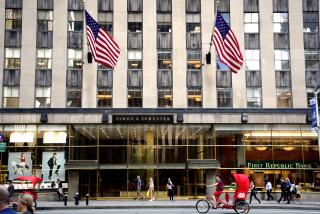Three publishers agree to $69 million e-book settlement
Three major publishers agreed Wednesday to pay $69 million in a settlement with states over e-book pricing. Hachette, HarperCollins and Simon & Schuster had previously agreed to settle in a suit brought by 49 states, the District of Columbia and four U.S. territories.
A separate case by the Department of Justice is ongoing.
The proposed settlement between the states and Hachette, HarperCollins and Simon & Schuster does not acknowledge any wrongdoing. The brief reads, in part, that the publishers “assert their actions were merely parallel, unilateral, or justified by market forces and completely legal. Settling Publishers also argue that their actions had procompetitive effects on the e-book market and that some E-book prices decreased after the adoption of the agency model.”
If the agreement is approved by the court, Hachette will pay $31,711,425, HarperCollins will pay $19,575,246, and Simon & Schuster will pay $17,752,480, Publishers Weekly reports. The agreement includes fees and other costs to be paid by the publishers.
What will consumers get? Those who purchased e-books between April 1, 2010, and May 21, 2012, that had been priced according to the agency model can expect refunds. Although the agency model had been put forward by Apple, other major e-book retailers, including Amazon and Barnes & Noble, priced their e-books accordingly.
Although the numbers are big on the macro level, the settlement won’t mean much fiscally for individual readers. Publishers will pay consumers $1.32 for each bestselling title they purchased, 32 cents for books that were less than a year old but not bestsellers, and 25 cents for older e-books. Even devoted readers won’t wind up with much more than the cost of a new e-book or two.
Conveniently, refunds will appear in e-book buyers’ online accounts on iTunes, Amazon and Barnes & Noble. Readers who purchased e-books through Google or Sony’s storefronts will receive a check, and others can opt to. They can also opt not to receive any rebate at all.
The lawsuit stemmed from agreements between publishers and Apple to move away from the industry’s traditional wholesale-retail model, in which retailers set the price of e-books, to an agency model, in which the e-bookstores served as agents that earned a percentage of each sale, allowing publishers to decide how much their e-books would cost. Publishers who wanted to sell with Apple moved to a similar model with Amazon.
One publisher declined to participate at the launch of the iBookstore: the biggest of the big six, Random House. The company was not part of the lawsuit.
Two remaining publishers, Macmillan and Penguin, have declined to settle. Because their e-books are included in the settlement, it is unlikely that the court will ratify the agreement until after the result of the lawsuit is clear. Additionally there are a number of class-action lawsuits filed by consumers.
ALSO:
Wild speculation about the Nobel Prize in Literature
Curiosity landing site on Mars named for Ray Bradbury
‘Harry Potter’ tops NPR list of 100 favorite teen novels
Carolyn Kellogg: Join me on Twitter, Facebook and Google+
More to Read
Sign up for our Book Club newsletter
Get the latest news, events and more from the Los Angeles Times Book Club, and help us get L.A. reading and talking.
You may occasionally receive promotional content from the Los Angeles Times.







